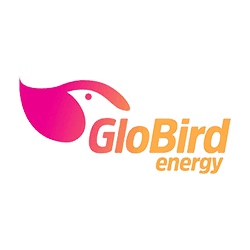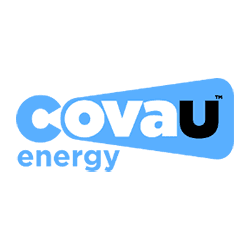
20% less than reference price
Energy Fact Sheet
Don't sleep on the cheapest electricity plans available in VIC in February 2026.

20% less than reference price
Energy Fact Sheet

19% less than reference price
Energy Fact Sheet

17% less than reference price
Energy Fact Sheet
These are the top 3 cheapest gas plans going strong in February 2026.

Super Saver Residential Gas Ausnet
Energy Fact Sheet

Energy Fact Sheet

Energy Fact Sheet
Looking to save some cash on essential household bills?
We know it's not the most fun task, but taking advantage of a competitive energy market in VIC is your best bet for saving money.
For instance, the difference between the cheapest and most expensive single-rate tariff electricity plan in our database is about $720 annually.
Here are some less obvious reasons to compare energy plans:
When you're comparing electricity or gas plans from different providers, it's important to check a few key details:
Don't zone out with this upcoming 30-second history lesson. It's important to give a little bit of context before jumping into some actionable points. Here we go.
In 2006, the Victorian state government mandated the rollout of electricity smart meters to all households and small businesses.
Smart meters record electricity usage every 30 minutes and send the data to your electricity distributor straight away. This means no more manual reads or estimated energy bills.
This is where things get a little bit complicated. Because of their capability, the pricing structure for energy plans (more specifically electricity) isn't super straightforward as there are different tariffs you could sign up for or may be put on unless you actively choose to opt-out.
There are two types of gas tariffs available in VIC, though most providers will favour block rates:
Finder compares some of VIC's most popular energy providers, including big brands such as AGL, EnergyAustralia and Origin Energy.
To make it easier, we've broken our lists for electricity and gas into two, but you'll notice some retailers offer plans for both. They're known as dual-fuel providers.
Usage rates for electricity and gas will vary depending on your retailer and the type of tariff you're on.
The average price of electricity hovers around 28.71 cents per kilowatt-hour (kWh), based on single rate tariff plans in our database.
Gas costs between 3.31 cents and 4.23 cents per megajoule (MJ). Gas plans usually come with tiered rates, meaning the price can vary depending on your energy usage throughout the month or quarter.
Supply charges for energy will vary depending on your energy distributor and can cost around 117.77 cents for electricity and 91.31 cents for gas.
Fortunately, you might be eligible for one or more energy rebates or concessions such as:
Most of the concessions are directed towards low-income households, seniors and concession card holders, and those with medical needs. You can read our in-depth guide for more information.
Victoria was the first state to deregulate its electricity market completely in 2009 following the privatisation of the retail energy markets in 2002.
However, the Essential Services Commission (VIC's energy watchdog) does try to make it a little bit easier for residential and small business customers to compare electricity plans.
Each year on 1 July, it sets a new Victorian Default Offer (VDO) which acts as a benchmark pricing.
Providers will need to display how their annual estimate on electricity plans stack up against the VDO. The difference will be shown as a percentage. You should always sign up for a plan that is below the VDO. The lower the better.
Victoria hopes to meet 65% of renewable energy targets by 2030 and 95% by 2035.
It's also banned gas connections for new dwellings, apartment buildings and residential subdivisions which require planning permits so the state can meet its net-zero emissions target by 2045.
Elsewhere, since launching in 2018, Solar Victoria's installed over 330,000 solar panels, batteries and hot water systems for households to help support renewable energy transmission.
If you don't have solar or can't make big changes to your home to support clean energy, you could:

"I stuck with the same energy provider for 3 years before I realised how much my loyalty (OK, laziness) was costing me. I was no longer on the cheapest plan and my electricity bill was huge. I compared plans by looking at my bill closely and finding a provider with lower hourly charges. Switching was really easy and basically just involved signing up and making an account. And now my bills are much smaller."
Compare the cheapest electricity and gas plans available in your state.
Check your quarterly electricity and gas bill against the average in your state.
Most Western Australia residents can't switch electricity providers but have a few options when it comes to gas. Find out if you can switch energy retailers.
We’ll help you compare and find the cheapest electricity provider in Tasmania — and guide you on your gas options too.
You have the power to switch energy plans in Adelaide and the rest of South Australia. Luckily it only takes minutes to hunt down the cheapest options with us.
Find out how the NT energy market works and compare your options now.
Whether you're in Sydney or regional NSW, comparing energy plans doesn't have to be a headache.
Residents of the ACT have several electricity and gas providers to choose from.
Ergon Energy creates and provides tailored and variable power supply to around 97% of the state of Queensland.